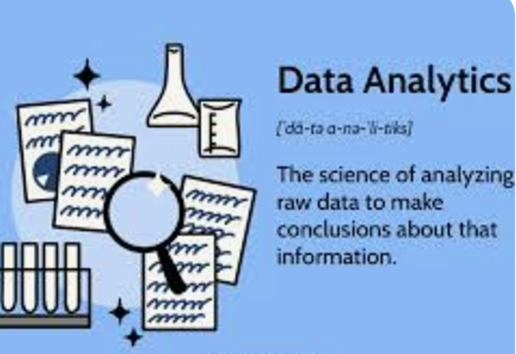FIND SUCCESS TODAY.
In the ever-evolving digital landscape, data is the driving force behind successful marketing strategies. Analytics give businesses a clear understanding of how their campaigns are performing, who their audience is, and what resonates with them. We use data to fine-tune strategies, target the right customers, and maximize ROI.

Understanding Your Audience . . .
By analyzing customer data, we gain insights into their behavior, preferences, and needs. This helps tailor marketing campaigns that speak directly to your target audience, ensuring higher engagement and conversions. Analytics let you see what content works best and refine messaging to match your audience’s expectations.
Optimizing Campaign Performance
Data provides transparency and real-time performance tracking. We measure key metrics—such as click-through rates, conversion rates, and bounce rates—to understand how well your campaigns are performing. With this insight, we continuously optimize strategies to improve results. Whether it’s tweaking ad copy, adjusting targeting, or reallocating the budget, we ensure your campaigns are as efficient as possible.
Improving Decision-Making
One of the most powerful aspects of analytics is its ability to help businesses make data-driven decisions. Instead of relying on guesswork, you can use actual numbers to inform decisions on everything from content creation to budget allocation. This eliminates uncertainty and empowers your business to act with confidence.

Analytics is like a map for marketers. It shows where you’ve been, where you are, and where you need to go. In today’s digital world, using analytics can make a huge difference in how well marketing campaigns perform. But what does that mean for businesses, and how can they use analytics to succeed? Let’s break it down in simple terms.
What Is Analytics in Marketing?
Marketing analytics is the practice of collecting and analyzing data from campaigns to make better decisions. This data can come from websites, social media, emails, or even in-store visits. It helps marketers understand how people interact with their brand.
For example:
- Website analytics track visits, clicks, and time spent on pages.
- Social media analytics show likes, shares, and follower growth.
- Email analytics reveal open rates and link clicks.
All of this information gives a clear picture of what works and what doesn’t.
Why Is Analytics Important?
Imagine trying to hit a target while blindfolded. Without analytics, that’s what marketing feels like. Analytics removes the blindfold, allowing marketers to see what strategies bring results.
Here’s why analytics is so valuable:
- Know Your Audience: Analytics shows who your customers are, what they like, and how they behave online.
- Save Time and Money: By focusing on what works, you avoid wasting resources on ineffective campaigns.
- Predict Trends: Analytics helps you spot patterns, making it easier to predict what customers will want next.
How Analytics Improves Marketing Strategies
- Better Targeting
With analytics, businesses can pinpoint the right audience for their ads. For example, if data shows your biggest audience is young adults, you can create content that appeals to them. - Personalized Marketing
Analytics allows companies to tailor messages based on customer preferences. Personalized emails, for instance, are more likely to get opened and clicked. - Tracking Progress
Analytics shows if a campaign is successful in real time. If something isn’t working, you can adjust your strategy on the fly.

Real-Life Example
Think about streaming services like Netflix. They analyze user habits—what you watch, when you watch, and even if you pause or rewind. This data helps them recommend shows and create content people will love. Marketers can do the same by studying how customers interact with their brand.
Steps to Use Analytics Effectively
- Set Clear Goals: Decide what you want to achieve, like increasing website traffic or boosting sales.
- Choose the Right Tools: Platforms like Google Analytics or HubSpot provide valuable data for tracking campaigns.
- Review Data Regularly: Keep an eye on key metrics and adjust your strategies as needed.
- Focus on Actionable Insights: Don’t just collect data—use it to make decisions.
Conclusion
Analytics is the secret weapon behind successful marketing campaigns. By understanding your audience, improving strategies, and tracking progress, you can turn data into results. Whether you’re a small business or a big brand, analytics can fuel your marketing success and help you reach your goals.
So, are you ready to let analytics guide your next marketing move? Start exploring your data today and see the difference it makes!
INTERNAL LINKS
Learn more about us: About Us
Blog Library: blogs